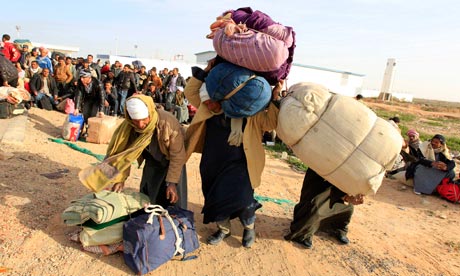By Justin Dorman
Impunity Watch Reporter, Middle East
CAIRO, Egypt – Under Mubarak, NGOs were sterilized by lengthy application processes that lasted years in which a group could not truly act for fear of having their application rejected. Under the military dictatorship, NGO staffers were targeted and arrested. Despite the 2011 uprising, Egypt again may see the day where NGOs are rendered impotent if the parliament’s latest draft law becomes implemented.

The new draft law would require any international NGO to request permission from an Egyptian committee, consisting of state security officials, before the taking of every action. This committee could reject the NGOs action as counterintuitive to Egypt’s public morals, development goals, and national unity. Furthermore, local groups who receive foreign aid would additionally require authorization by this committee to act. Marwan Abi Samra, head of the democratic governance for the United Nations in Egypt, estimates that over the past decade that ninety percent of all funding for local human rights groups has come from abroad.
Bahey al-Deeen Hassan, the head of the Cairo Institute for Human Rights Studies explains that, “the law is an obvious bid to shift the civil working organizations from non-governmental to governmental societies.” He goes on to state that the draft proposal is “‘the worst law’ that had been drafted in the history of NGOs in Egypt.”
The Egyptian program director at the Cairo Institute for Human Rights Studies, Mohamed Zaree, feels betrayed. He says that when he was a participant in the Tahrir Square uprising, “the demands of the revolution were bread and freedom and social justice. Not bread and freedom and restricting the work of NGOs.”
The United Nations and European Union hate this law as proposed, as does the international human rights group, Human Rights Watch. The Egyptian director at Human Rights Watch, Heba Morayef, stated that the law, “haw very vague language that gives the government discretion to halt any activities that it doesn’t agree with substantively.”
While the committee may not completely reject the activities of an NGO, bureaucracy could bring the effectiveness of the NGO to a screeching halt. Gasser Abdel-Razek, the associate director at the Egyptian Initiative for Personal Rights, believes that ultimately the NGO will “really waste a lot of [its] resources in keeping [it]self alive, rather than in contributing to whatever [it] set out to do.”
Heba Morayef conjectures that one area this law may immediately hurt is women’s rights. She believes that it is a prerogative of the Muslim Brotherhood to not grant women any more basic rights and can envision a group whose mission is to work on women’s rights being told by this special committee that women’s rights is not a priority in Egypt and that the group should find something else to do.
It is vital for a human rights group to be able to act independently of the government which it is analyzing, condemning, or seeking to benefit. This law would destroy that independence, and any likely destroy any good that an NGO could do in Egypt.
For further information, please see:
Coast Week – NGOs Bill Sparks Fears in Egypt Over Freedom Restrictions – 5 April 2013
Guardian – Human Rights Groups Fear Impact of Draft Egypt law Restricting Their Work – 5 April 2013
Egypt Independent – UN Experts Condemn Shura Council’s NGO Bill – 28 March 2013
Al Monitor – Egypt’s NGOs Face new Strictures Under Ruling Party – 14 March 2013